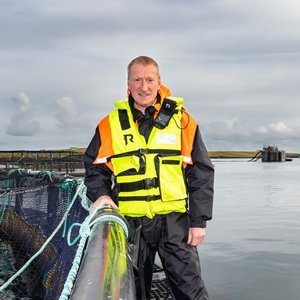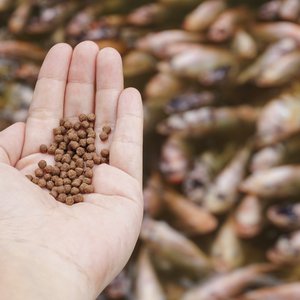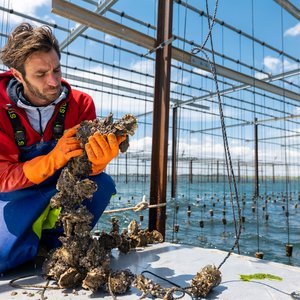Jen, the Wolof word for fish, is a dietary staple and a prized resource in Senegal. An estimated 20 percent of the country's workforce — some 600,000 people — are employed in the fisheries sector.
The fish market in Mbour, on Senegal's Atlantic coast, is one of West Africa\'s busiest. The catch of the day can be bought straight off the colorful wooden canoes all year round. In reality, insiders say, the fisheries sector has been nowhere near as vibrant as Mbour market in recent years.
"When the ships go out to sea together, there are not enough fish and they return without any catch. People are thinking there are no more fish left," said Gaoussou Gueye, a veteran fishmonger.
The region's fish stocks have been depleted over many years by the industrial trawlers combing its oceans for species such as tuna, destined for European and Asian markets.
Lately, industrial-scale aquaculture in Asia especially is also fueling demand for West Africa's fish stocks and making a bad situation worse.
Fish farming requires powdered fish meal. In recent years, a dozen fish meal factories have been built along the Senegalese coast. In neighboring Mauritania, 30 such factories opened their doors in the past 15 years. Many are Chinese-owned.
The fish from West Africa is affordable compared to other parts of the world and is therefore a cheap source of fishmeal.
"The problem with fishmeal is that for one kilogram (2.2 pounds) of fishmeal you are using at least five to 10 kilograms of fish. So you are also destroying the value of fresh fish for the population," Francisco Mari, an expert on fishing at the relief and development agency Bread for the World, told DW.
"The production of fishmeal is irresponsible from a nutrition standpoint," Mari said. The foreign production of the fish feed is driving up the price of sardinella on the local market.
About 20 percent of Senegalese fishers catch only sardinella. For them, the fishmeal plants are more attractive as customers than locals: they buy in bulk and pay in cash.
Workers in the fisheries sector say they fear losing their jobs as they face increasing competition over the region's staple diet.
Women who prepare, smoke and then sell the fish are especially affected by the rising prices.
"These women are in a very vulnerable situation; they have to compete with large international companies to buy fish from the fishermen," Engstrom told DW.
"The prices of the fish have gone up immensely and they can no longer afford the resource they need to sustain their business and to feed the population."
Source: DW.com // Original Article










